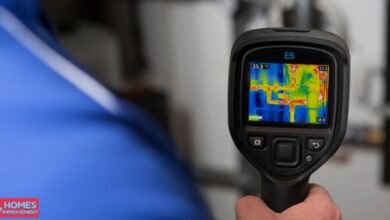10 Effective Ways to Protect Your Home from Water Damage

Water damage can be one of the most costly and stressful problems homeowners face. From burst pipes to flooding, water-related issues can lead to structural damage, mold growth, and expensive repairs. Fortunately, there are several proactive steps you can take to safeguard your home. Here are 10 effective ways to prevent water damage and keep your property safe.
1. Inspect and Maintain Your Roof
Your roof is your home’s first line of defense against water intrusion. Regularly:
- Check for missing, cracked, or curled shingles
- Clear debris from gutters and downspouts
- Look for signs of leaks in the attic
2. Clean and Repair Gutters
Clogged gutters can cause water to overflow and damage your home’s foundation.
- Clean gutters at least twice a year
- Ensure downspouts direct water away from your home
- Install gutter guards to reduce debris buildup
3. Check Plumbing Regularly
Small leaks can turn into big problems if left unchecked.
- Inspect pipes under sinks and behind appliances
- Look for signs of corrosion or moisture
- Replace old or worn-out washers in faucets
4. Install a Sump Pump
If your basement is prone to flooding, a sump pump can be a lifesaver.
- Choose a battery-powered backup system for power outages
- Test it regularly to ensure it’s working properly
- Keep the pit clean and free of debris
5. Address Blocked Drains Promptly
Slow or blocked drains can lead to backups and water damage. If you notice slow drainage, act quickly. For persistent issues like blocked drains in Bexleyheath, consider calling a professional drainage service to prevent more serious problems.
6. Waterproof Your Basement
Basements are particularly vulnerable to water damage.
- Apply waterproof sealant to walls and floors
- Install a French drain system if necessary
- Use a dehumidifier to control moisture levels
7. Know Your Water Main Location
In case of a major leak, knowing how to shut off your water supply can prevent extensive damage.
- Locate your main water shut-off valve
- Label it clearly for easy access
- Teach all household members how to use it
8. Monitor Water Pressure
Excessively high water pressure can strain pipes and cause leaks.
- Use a pressure gauge to check your home’s water pressure
- Install a pressure regulator if needed
- Ideal pressure is between 40-60 psi
9. Inspect Appliances Regularly
Appliances like washing machines, dishwashers, and water heaters can leak.
- Check hoses for cracks or bulges
- Replace rubber hoses with braided stainless steel ones
- Look for pooling water or moisture around appliances
10. Landscape for Proper Drainage
Your yard’s slope can affect how water flows around your home.
- Grade soil away from your foundation
- Use plants and mulch to absorb excess water
- Consider installing a rain garden in low-lying areas
Final Thoughts
Preventing water damage requires vigilance and regular maintenance. By taking these proactive steps, you can protect your home from costly repairs and maintain its value. If you’re dealing with persistent issues like blocked drains in Bexleyheath, don’t hesitate to seek professional help before the problem escalates
If you need more information, click on this link.





